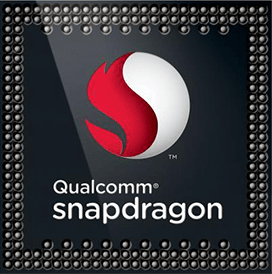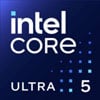
Qualcomm Snapdragon 8 Gen 2 Benchmark, Test and specs
Last updated:
The Qualcomm Snapdragon 8 Gen 2 has 8 cores with 8 threads and is based on the 2. gen of the Qualcomm Snapdragon series. The processor was released in Q4/2022. The Qualcomm Snapdragon 8 Gen 2 scores 1,502 points in the Geekbench 5 single-core benchmark. In the Geekbench 5 multi-core benchmark, the result is 5,089 points.

| Name: | Qualcomm Snapdragon 8 Gen 2 |
|---|---|
| Family: | Qualcomm Snapdragon (102) |
| CPU group: | Qualcomm Snapdragon 8 Gen 2 (2) |
| Architecture: | Cortex-X3 / -A715 / -A510 |
| Segment: | Mobile |
| Generation: | 2 |
| Predecessor: | Qualcomm Snapdragon 8 Gen 1 |
| Successor: | Qualcomm Snapdragon 8 Gen 3 |
CPU Cores and Base Frequency
The Qualcomm Snapdragon 8 Gen 2 has 8 CPU cores and can calculate 8 threads in parallel. The clock frequency of the Qualcomm Snapdragon 8 Gen 2 is 3.36 GHz. The number of CPU cores greatly affects the speed of the processor and is an important performance indicator.
| CPU Cores / Threads: | 8 / 8 |
|---|---|
| Core architecture: | hybrid (Prime / big.LITTLE) |
| A-Core: | 1x Cortex-X3 |
| B-Core: | 4x Cortex-A715/A710 |
| C-Core: | 3x Cortex-A510 |
| Hyperthreading / SMT: | No |
|---|---|
| Overclocking: | No |
| A-Core Frequency: | 3.36 GHz |
| B-Core Frequency: | 2.80 GHz |
| C-Core Frequency: | 2.00 GHz |
Artificial Intelligence and Machine Learning
Processors with the support of artificial intelligence (AI) and machine learning (ML) can process many calculations, especially audio, image and video processing, much faster than classic processors. Algorithms for ML improve their performance the more data they have collected via software. ML tasks can be processed up to 10,000 times faster than with a classic processor.
| AI hardware: | Qualcomm AI engine |
|---|---|
| AI specifications: | Hexagon 780 @ 26 TOPS |
Internal Graphics
The Qualcomm Snapdragon 8 Gen 2 has integrated graphics, called iGPU for short. Specifically, the Qualcomm Snapdragon 8 Gen 2 uses the Qualcomm Adreno 740, which has -- texture shaders and -- execution units. The iGPU uses the system's main memory as graphics memory and sits on the processor's die.
| GPU name: | Qualcomm Adreno 740 |
|---|---|
| GPU frequency: | 0.68 GHz |
| GPU (Turbo): | No turbo |
| Compute units: | -- |
| Shader: | -- |
| Hardware Raytracing: | Yes |
| Release date: | Q4/2022 |
| Max. displays: | 2 |
|---|---|
| Generation: | 8 |
| Direct X: | 12.1 |
| Technology: | 4 nm |
| Max. GPU Memory: | 6 GB |
| Frame Generation: | No |
Hardware codec support
A photo or video codec that is accelerated in hardware can greatly accelerate the working speed of a processor and extend the battery life of notebooks or smartphones when playing videos.
| h265 / HEVC (8 bit): | Decode / Encode |
|---|---|
| h265 / HEVC (10 bit): | Decode / Encode |
| h264: | Decode / Encode |
| VP8: | Decode / Encode |
| VP9: | Decode / Encode |
| AV1: | Decode |
|---|---|
| AVC: | Decode |
| VC-1: | Decode |
| JPEG: | Decode / Encode |
Memory & PCIeThe processor can use up to 24 GB memory in 4 (Quad Channel) memory channels. The maximum memory bandwidth is 67.0 GB/s. The memory type as well as the amount of memory can greatly affect the speed of the system. |
|
| Memory type: | Memory bandwidth: |
|---|---|
| LPDDR5X-8400 | 67.0 GB/s |
| Max. Memory: | 24 GB |
| Memory channels: | 4 (Quad Channel) |
| ECC: | No |
| PCIe: | |
| PCIe Bandwidth: | -- |
Thermal ManagementThe thermal design power (TDP for short) of the processor is . The TDP specifies the necessary cooling solution that is required to cool the processor sufficiently. The TDP usually gives a rough idea of the actual power consumption of the CPU. |
|
|---|---|
| TDP (PL1 / PBP): | |
| TDP (PL2): | -- |
| TDP up: | -- |
| TDP down: | -- |
| Tjunction max.: | -- |
Technical details
The Qualcomm Snapdragon 8 Gen 2 is made in 4 nm. The smaller the manufacturing process of a CPU, the more modern and energy-efficient it is. Overall, the processor has 8.00 MB cache. A large cache can greatly speed up the processor's speed in some cases such as games.
| Technology: | 4 nm |
|---|---|
| Chip design: | Chiplet |
| Socket: | -- |
| L2-Cache: | -- |
| L3-Cache: | 8.00 MB |
| AES-NI: | No |
| Operating systems: | Android, Windows 10/11 (ARM) |
| Virtualization: | None |
|---|---|
| Instruction set (ISA): | Armv9-A (64 bit) |
| ISA extensions: | -- |
| Release date: | Q4/2022 |
| Release price: | -- |
| Part Number: | SM8550-AB |
| Documents: | Technical data sheet |
Rate this processor
Benchmark results

The benchmark results for the Qualcomm Snapdragon 8 Gen 2 have been carefully checked by us. We only publish benchmark results that have been created by us or that have been submitted by a visitor and then checked by a team member. All results are based on and fullfill our benchmark guidelines.
Geekbench 5, 64bit (Single-Core)
Geekbench 5 is a cross plattform benchmark that heavily uses the systems memory. A fast memory will push the result a lot. The single-core test only uses one CPU core, the amount of cores or hyperthreading ability doesn't count.

|
AMD Ryzen 5 PRO 5675U
6C 12T @ 4.30 GHz |
||

|
AMD Ryzen 9 5900HX
8C 16T @ 4.60 GHz |
||

|
AMD Ryzen 5 5600G
6C 12T @ 4.40 GHz |
||
|
|
Qualcomm Snapdragon 8 Gen 2
8C 8T @ 3.36 GHz |
||

|
Intel Xeon W-1290
10C 20T @ 5.20 GHz |
||

|
Intel Core i7-11700T
8C 16T @ 4.60 GHz |
||

|
AMD Ryzen 5 PRO 5650U
6C 12T @ 4.20 GHz |
||
Geekbench 5, 64bit (Multi-Core)
Geekbench 5 is a cross plattform benchmark that heavily uses the systems memory. A fast memory will push the result a lot. The multi-core test involves all CPU cores and taks a big advantage of hyperthreading.

|
Intel Core i5-11320H
4C 8T @ 3.20 GHz |
||

|
Intel Core i5-10500TE
6C 12T @ 3.50 GHz |
||

|
Intel Core i5-1145G7
4C 8T @ 3.80 GHz |
||
|
|
Qualcomm Snapdragon 8 Gen 2
8C 8T @ 3.36 GHz |
||

|
Intel Xeon Silver 4108
8C 16T @ 2.30 GHz |
||

|
Intel Xeon Silver 4109T
8C 16T @ 2.50 GHz |
||

|
Intel Xeon E5-2630 v2
6C 12T @ 2.80 GHz |
||
Geekbench 6 (Single-Core)
Geekbench 6 is a benchmark for modern computers, notebooks and smartphones. What is new is an optimized utilization of newer CPU architectures, e.g. based on the big.LITTLE concept and combining CPU cores of different sizes. The single-core benchmark only evaluates the performance of the fastest CPU core, the number of CPU cores in a processor is irrelevant here.

|
Intel Xeon w7-3465X
28C 56T @ 4.80 GHz |
||

|
AMD Ryzen 9 5900HS Creator Edition
8C 16T @ 4.60 GHz |
||

|
AMD Ryzen 9 5900HX
8C 16T @ 4.60 GHz |
||
|
|
Qualcomm Snapdragon 8 Gen 2
8C 8T @ 3.36 GHz |
||

|
Intel Core i7-11800H
8C 16T @ 4.60 GHz |
||

|
Intel Core i5-11400F
6C 12T @ 4.40 GHz |
||

|
Intel Core i5-11400
6C 12T @ 4.40 GHz |
||
Geekbench 6 (Multi-Core)
Geekbench 6 is a benchmark for modern computers, notebooks and smartphones. What is new is an optimized utilization of newer CPU architectures, e.g. based on the big.LITTLE concept and combining CPU cores of different sizes. The multi-core benchmark evaluates the performance of all of the processor's CPU cores. Virtual thread improvements such as AMD SMT or Intel's Hyper-Threading have a positive impact on the benchmark result.

|
Intel Core i7-8750H
6C 12T @ 3.90 GHz |
||

|
Intel Xeon W-2125
4C 8T @ 4.50 GHz |
||

|
AMD Ryzen 3 PRO 4200G
4C 8T @ 4.10 GHz |
||
|
|
Qualcomm Snapdragon 8 Gen 2
8C 8T @ 3.36 GHz |
||

|
AMD Ryzen 3 PRO 4350G
4C 8T @ 4.00 GHz |
||

|
Intel Core i5-8500
6C 6T @ 3.70 GHz |
||

|
Intel Xeon E5-2650L v3
12C 24T @ 2.20 GHz |
||
iGPU - FP32 Performance (Single-precision GFLOPS)
The theoretical computing performance of the internal graphics unit of the processor with simple accuracy (32 bit) in GFLOPS. GFLOPS indicates how many billion floating point operations the iGPU can perform per second.

|
AMD Ryzen 5 2400G
AMD Radeon RX Vega 11 (Raven Ridge) @ 1.25 GHz |
||

|
AMD Ryzen 5 2400GE
AMD Radeon RX Vega 11 (Raven Ridge) @ 1.25 GHz |
||

|
AMD Ryzen 5 PRO 2400G
AMD Radeon RX Vega 11 (Raven Ridge) @ 1.25 GHz |
||
|
|
Qualcomm Snapdragon 8 Gen 2
Qualcomm Adreno 740 @ 0.68 GHz |
||

|
Intel Core i5-13600HRE
Intel Iris Xe Graphics 80 (Alder Lake) @ 1.40 GHz |
||

|
Intel Core i5-1350PRE
Intel Iris Xe Graphics 80 (Alder Lake) @ 1.40 GHz |
||

|
Intel Core Ultra 5 134U
Intel Iris Xe 4 Core Graphics 64 EUs (Meteor Lake) @ 1.75 GHz |
||
AnTuTu 9 Benchmark
The AnTuTu 9 benchmark is very well suited to measuring the performance of a smartphone. AnTuTu 9 is quite heavy on 3D graphics and can now also use the "Metal" graphics interface. In AnTuTu, memory and UX (user experience) are also tested by simulating browser and app usage. AnTuTu version 9 can compare any ARM CPU running on Android or iOS. Devices may not be directly comparable when benchmarked on different operating systems.
In the AnTuTu 9 benchmark, the single-core performance of a processor is only slightly weighted. The rating is made up of the multi-core performance of the processor, the speed of the working memory, and the performance of the internal graphics.
In the AnTuTu 9 benchmark, the single-core performance of a processor is only slightly weighted. The rating is made up of the multi-core performance of the processor, the speed of the working memory, and the performance of the internal graphics.

|
Qualcomm Snapdragon 8 Gen 3
8C 8T @ 3.40 GHz |
||
|
|
Qualcomm Snapdragon 8 Gen 2
8C 8T @ 3.36 GHz |
||

|
Qualcomm Snapdragon 8 Gen 2 for Galaxy
8C 8T @ 3.36 GHz |
||

|
MediaTek Dimensity 9200
8C 8T @ 3.05 GHz |
||

|
Apple A17 Pro
6C 6T @ 3.78 GHz |
||

|
MediaTek Dimensity 9000+
8C 8T @ 3.20 GHz |
||

|
Qualcomm Snapdragon 8+ Gen 1
8C 8T @ 3.20 GHz |
||
Performance for Artificial Intelligence (AI) and Machine Learning (ML)
Processors with the support of artificial intelligence (AI) and machine learning (ML) can process many calculations, especially audio, image and video processing, much faster than classic processors. The performance is given in the number (trillions) of arithmetic operations per second (TOPS).

|
Qualcomm Snapdragon 888+
8C 8T @ 3.00 GHz |
||

|
Apple M2 Ultra (60-GPU)
24C 24T @ 0.66 GHz |
||

|
Apple M2 Ultra (76-GPU)
24C 24T @ 0.66 GHz |
||
|
|
Qualcomm Snapdragon 8 Gen 2
8C 8T @ 3.36 GHz |
||

|
Qualcomm Snapdragon 8 Gen 2 for Galaxy
8C 8T @ 3.36 GHz |
||

|
Qualcomm Snapdragon 8 Gen 1
8C 8T @ 3.00 GHz |
||

|
Qualcomm Snapdragon 888
8C 8T @ 2.84 GHz |
||
Benchmarks

Geekbench 5 (SC)
2,488 entries
2,488 entries

Geekbench 5 (MC)
2,461 entries
2,461 entries

Geekbench 6 (SC)
1,755 entries
1,755 entries

Geekbench 6 (MC)
1,703 entries
1,703 entries

FP32 SP (iGPU)
2,042 entries
2,042 entries

AnTuTu 9 Benchmark
90 entries
90 entries

AI / ML Performance
119 entries
119 entries
Description of the processor
The Qualcomm Snapdragon 8 Gen 2 is the latest high-end smart device processor from Qualcomm. It uses a hybrid big.LITTLE CPU core structure with a so-called prime core. This prime core is even faster and clocks at up to 3.36 GHz in the Qualcomm Snapdragon 8 Gen 2.In addition, four Coretx-A715 CPU cores are used as P cores, which operate at up to 2.8 GHz in the Qualcomm Snapdragon 8 Gen 2. These are supplemented by 3 efficient and smaller Cortex-A510 CPU cores. These have a clock frequency of 2.0 GHz. Overall, the Qualcomm Snapdragon 8 Gen 2 has 8 CPU cores.
An Adreno GPU, which has not yet been specified, is used as the graphics. In the Qualcomm Snapdragon 8 Gen 2, this GPU offers very high performance, all modern video codes as well as ray tracing calculation in hardware are supported. This is what Qualcomm calls the support for the new Unreal Engine 5. Version 1.3 of the Vulkan API is now supported.
In order to be able to fully develop its performance, the Qualcomm Snapdragon 8 Gen 2 can access up to 16 GB of RAM. The new LPDDR5X-8400 standard is supported for the first time.
The Qualcomm Snapdragon 8 Gen 2 has its own AI cores to accelerate machine learning. Qualcomm advertises a 4.35x higher AI performance compared to its predecessor. Also new is the support of INT4 calculations, which is supported for the first time by a Qualcomm CPU. According to the manufacturer, the performance-to-energy ratio improves by up to 60 percent in special scenarios.
The Qualcomm Snapdragon 8 Gen 2 is manufactured in a 4 nm process, so the SoC is very economical and energy-efficient. The Qualcomm Snapdragon 8 Gen 2 was developed for high-end smartphones and tablets as well as for smaller notebooks that run e.g. with Windows ARM.
Popular comparisons
back to index






